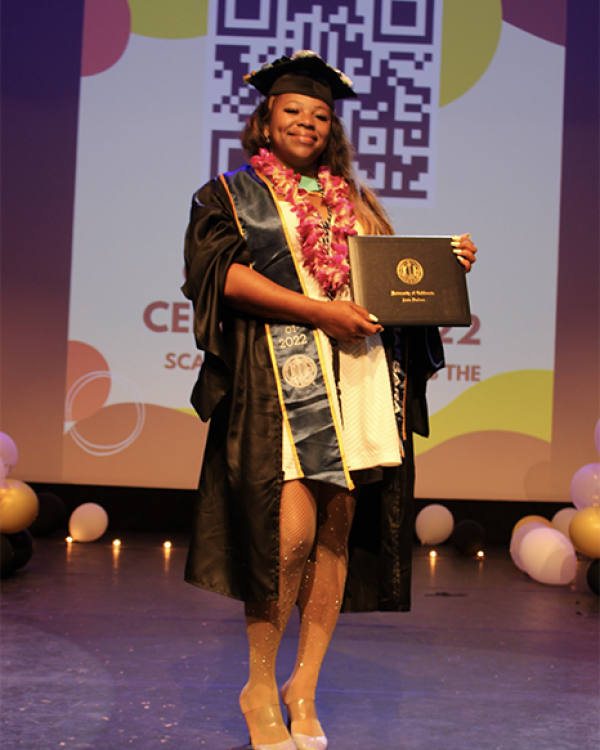
Miriam Burnett graduated with a Master’s from the Department of Education in 2021 (and got to walk at commencement this year). She was a supervisor on the ÉXITO (Educational eXcellence and Inclusion Training Opportunities) project, a program dedicated to providing high-quality ethnic studies education to high school students in California. She was also the Community College Office of the President Fellow. She entered the Department’s Ph.D. program this past fall.
GGSE: Tell us a little bit about your MA work.
Burnett: This work is driven by a larger study based on a Department of Education grants (ÉXITO). This may be the first time people understand how ethnic and feminist studies coursework has an influence on changes in perceptions of self, family, and of others from different backgrounds for STEM students. Soft skills are particularly important for considering nontraditional problem solving, and my work considers strengthening relationships between technical competencies and the cultural competencies, as both essential for success in the 21st century workplace.
GGSE: What led you to focus on the benefit of ethnic studies to STEM majors?
Burnett: The data was presented to me while working with the ÉXITO program as a graduate student researcher. While doing some coding, the team and I thought the STEM student responses were particularly unique. This may be the first time that many readers of our work are exposed to the cultural perspectives of STEM students after ethnic/feminist studies provided new approaches to thinking and learning how to better promote equality.
GGSE: How has GGSE impacted your passion for education?
Burnett: GGSE has given me the resources to pursue a higher education degree that I can be proud of moving forward. Faculty and staff have embraced my research and have often expanded their multicultural lens after casual encounters or within classroom conversations.
GGSE: Are there people at the Gevirtz School you would like to thank?
Burnett: I would like that Dr. Julie Bianchini, Dr. Rebeca Rios, Dr. Sarah Roberts, and Dr. Sharon Tettegah for their ongoing support, structure, and tough love as I claim this higher educational victory.